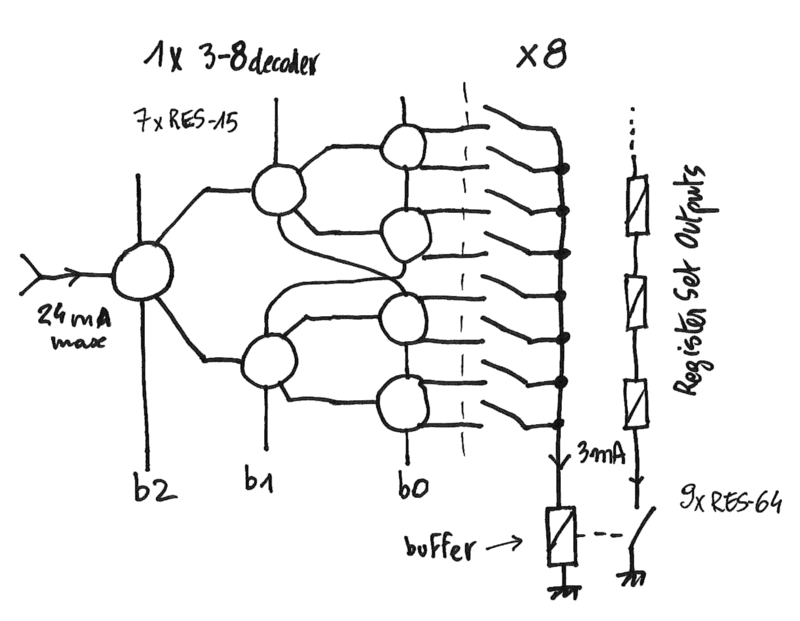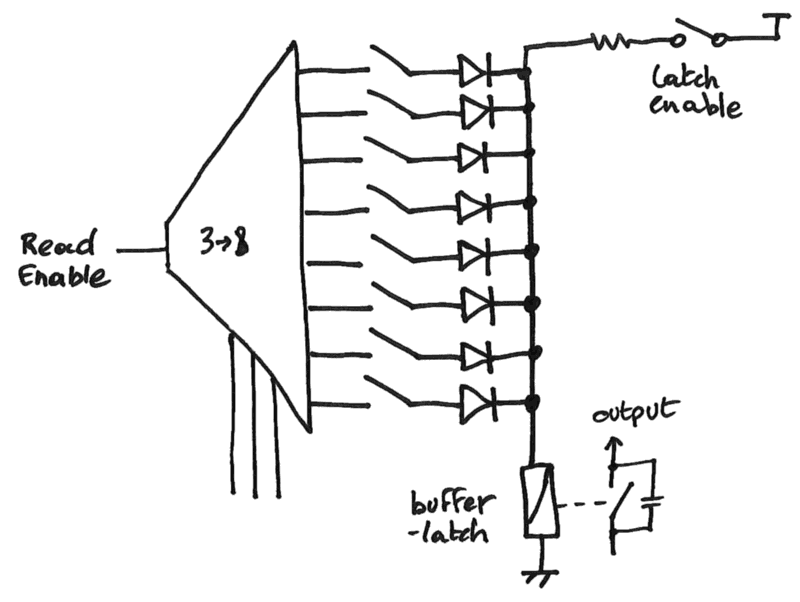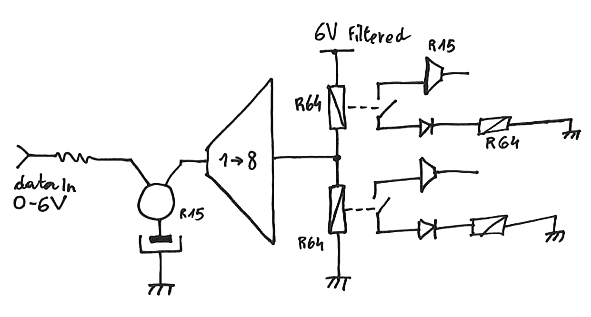With the new RES-64 reed relays, the intended circuit must be adapted. Then with the experience gained with the other circuits, I came up with a different system that has several significant advantages over the prototype I made 2 years ago... But there is one drawback : it takes MORE RES-64 and more room !
The write section doesn't change : each bitplane requires a MUX8 to steer the bit to the appropriate coil, plus the latching relay+capacitor, that's already 8×RES15 and 8×RES64.
Reading however is different ! I simply took the large MUXes away, and I decode 3->8 with bipolar signals to select a whole register. I must add one diode per relay to prevent feedback loops but they are pretty small and cheap.
However there are 2 read ports and each latch must be duplicated because the RES64 are not DPST... that means a total of 144 RES64 !
Nothing crazy here, it's simply that I moved the MUX8 from the last to the first side, so it can be shared among the 8 bitplanes, which saves a significant number of relays.

Fewer relays make the system more dependable/reliable. The "sense buffer" (the same RES64 as the latches) needs less than 3mA and the MUX switches less than 3×8=24mA, the contacts are safe.
Of course it's not so simple : so many switches in parallel make feedback loops so we need diodes, one per switch, or 8 per bitplane, or 64 overall... But they are small and cheap so it's tolerable.

with the diodes, it might even be possible to use a bipolar system to save some decoding relays (MUX4 instead of MUX8), though it might be tricky...
It is also possible to latch the read bit, in case we need a pipeline latch or timing isolator.
But each RES64 is only a single switch and we need 2 of them, so unless I find a DPST reed relay that is similar enough, there are few choices :
- use/find/buy MORE RES64, which will take a lot of room
- use/find/buy more SIP reed relays (such as the Chinese ones I have found) because they are small and still cheap, though they break the "all-Russian style"...
- find a dual-switches reed relay... => unlikely.
This problem is specific to the register set because it has two read ports.
I/O and other registers have only one port (usually) so we can still use this method, for example for the scratchpad area.
Anyway, the huge parallel MUX8s were big annoyances and I'm glad I reduced their quantity. But I find myself with more questions to solve...
Lacking a proper, cheap, well-behaved DPST relay is not a catastrophe in itself. We can build one from two SPST relays by replacing the resistor with another coil, as in the sketch below:

The system will be less "clacky" because reading one operand will switch far fewer contacts. Maybe it's for the best for our ears, but it's certainly better for the overall reliability : the fewer energised relays, the fewer power it draws, the fewer points of failure...
Furthermore : this diode-OR system could be useful to save a few relays here and there, because the SRI operand gets data from a MUX in the datapath. The "read enable" can be disabled if an immediate value (or anything else) is required by the instruction.
 Yann Guidon / YGDES
Yann Guidon / YGDES
Discussions
Become a Hackaday.io Member
Create an account to leave a comment. Already have an account? Log In.